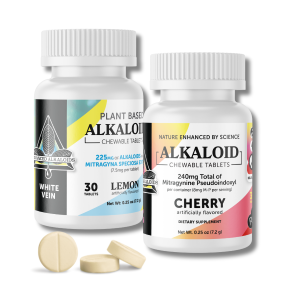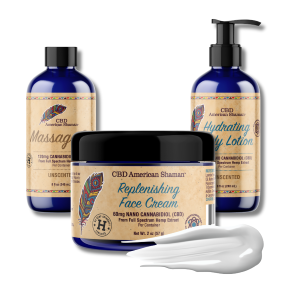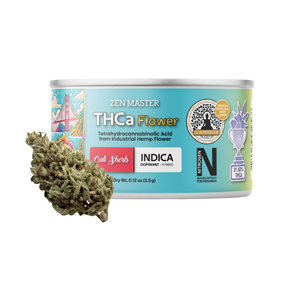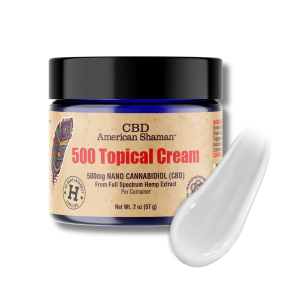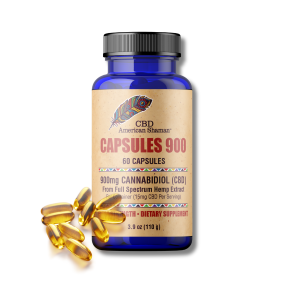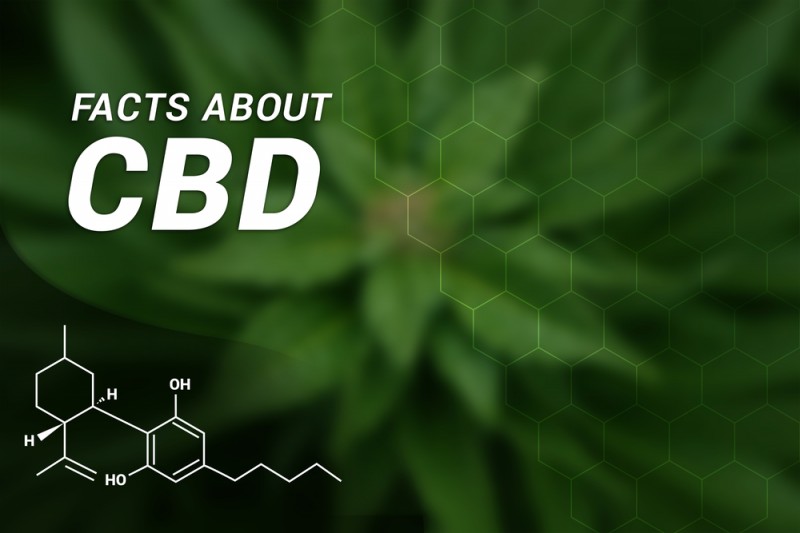Yes, you can be sensitive to CBD. Cannabidiol (CBD) is a non-psychoactive compound derived from the cannabis plant, used in various products (oils, topicals, edibles, and capsules). CBD is used for its potential benefits, including promoting comfort and well-being. An allergic reaction occurs when the immune system mistakenly identifies CBD or other ingredients in the product as harmful. CBD sensitivity is possible and can manifest as symptoms (CBD allergy rash, itching, swelling, or breathing difficulties), while CBD sensitivities are rare. The reactions are triggered by other ingredients in the product (carrier oils, terpenes, preservatives, or flavoring agents), rather than cannabidiol itself. Allergy to CBD oil symptoms may vary depending on the product and its ingredients. Hemp allergy is another consideration, as consumers sensitive to hemp may experience similar symptoms when exposed to CBD products. Recognizing signs of an allergic reaction is essential for consumers to avoid further exposure and seek appropriate medical advice if needed. Understanding CBD allergy helps ensure safe use of CBD products.
What are the Types of Allergic Reaction in CBD Oil?
The types of allergic reactions in CBD oil are listed below.
- Skin Reactions: Skin reactions can occur when the immune system responds to ingredients in topical or ingestible cannabidiol (CBD) oil. Symptoms may include redness, itching, hives, or dry, irritated skin. Common triggers include ingredients like coconut oil, grapeseed oil, synthetic fragrances, preservatives, and colorants.
- Respiratory Reactions: Respiratory reactions may develop after inhaling vapors, smoke, or terpenes found in CBD products. Symptoms include sneezing, coughing, or nasal congestion. Naturally occurring compounds such as pinene or limonene act as airborne triggers. Reactions are most reported with vaping or scented oil use and may resemble general respiratory sensitivities.
- Digestive Reactions: Digestive reactions may arise after ingesting CBD oil that includes allergenic ingredients. Symptoms include stomach discomfort, bloating, or queasiness. Common ingredients that contribute to the effects include almond oil, sesame oil, soy-based emulsifiers, or gluten introduced during processing.
- Systemic Reactions: Systemic reactions involve a full-body immune response and are considered rare but serious. Symptoms include facial puffiness, feeling faint, or trouble breathing. The reactions are linked to hidden allergens in complex CBD oil formulations, such as botanical proteins, ethanol bases, or synthetic additives.
Is It Possible To Have An Allergy To CBD?
Yes, it is possible for some consumers to experience an allergic-type response to CBD. The immune system may interpret cannabidiol as an irritant, which could lead to symptoms such as hives, swelling, or difficulty breathing. The type of reaction is considered an immune-mediated response. Allergy to CBD is rare, but isolated reports have been documented that CBD use can cause skin sensitivity, according to research titled “Contact Dermatitis Associated with Cannabidiol Use” by Dr. Erica L. Fortner in 2021. Sensitivities associated with CBD oil are linked to other components in the formulation, such as terpenes, food-derived oils, synthetic preservatives, or residual plant compounds. Scientific findings, including research in Frontiers in Allergy, suggest that allergic responses involving cannabis result from lipid transfer proteins or environmental contaminants rather than cannabinoids themselves, according to research titled “Cannabis sativa: A comprehensive overview of a botanical plant with a focus on allergy” by Dr. Liat Lerner-Baron in 2021. Products using CBD isolate may be less inclined to trigger allergic responses compared to full-spectrum varieties, which contain a broader range of plant-derived substances. A healthcare provider may recommend patch testing or a review of the product’s full ingredient list to assess whether a reaction is due to CBD or another ingredient.
What happens if I’m allergic to CBD?
The immune system may interpret it as a potential irritant if you’re sensitive to CBD, leading to an immune reaction. Responses can occur shortly after exposure or take a few hours, depending on how the product is used and the amount involved. Mild reactions may include localized itching, skin irritation, or nasal stuffiness. Noticeable responses could involve hives, facial or lip puffiness, or digestive discomfort like queasiness or stomach pain. Rare but strong reactions include breathing difficulty, dizziness, or a severe allergic response requiring prompt attention. Reports have noted cases such as skin irritation following topical CBD use, including findings from the 2021 study “Contact Dermatitis Associated with Cannabidiol Use” by Dr. Erica L. Fortner. Research published in Frontiers in Allergy highlights that terpenes, lipid transfer proteins, and contaminants are the actual triggers behind cannabis-related sensitivities. The product must be discontinued immediately if an allergy is suspected. The affected area can be gently washed with mild soap and water for topical exposure. Consulting a healthcare provider is recommended for evaluation and potential allergy testing. Providing a list of the product’s ingredients may help identify the source of the reaction.
What are the CBD Allergy Symptoms?
The CBD allergy symptoms are listed below.
- Skin Symptoms: Skin Symptoms may include itching, redness, hives, or dry, irritated patches. Symptoms appear after applying CBD creams or balms and can stay localized or spread if use continues. Some persons may become sensitized over time, leading to delayed reactions.
- Respiratory Symptoms: Respiratory Symptoms include sneezing, wheezing, coughing, nasal congestion, or difficulty breathing. CBD products that are vaporized or inhaled are more prone to cause such effects due to the presence of terpenes or aromatic compounds, which may act as airborne triggers. Responses may happen quickly in persons with known respiratory sensitivities.
- Gastrointestinal Symptoms: Gastrointestinal Symptoms include queasiness, abdominal discomfort, bloating, or changes in digestion. Allergies result from ingesting CBD oils or edibles that contain allergens such as carrier oils or flavoring agents. Symptoms may develop after a single use or build up gradually with continued intake.
- Systemic Symptoms: Systemic Symptoms may involve dizziness, facial puffiness, light-headedness, or difficulty breathing. The symptoms may reflect broader immune sensitivity and are more linked to long-term exposure to multi-compound products.
- Delayed Symptoms: Delayed Symptoms can emerge after extended or repeated use. Common indicators include skin reactivity, low-grade inflammation, or general fatigue. A gradual immune sensitization may contribute to such responses, which may benefit from professional consultation.
Can you have an Allergic Reaction in CBD Gummies?
Yes, it is possible to experience an allergic reaction to CBD gummies. CBD gummies combine cannabidiol with common edible ingredients like gelatin, corn syrup, sugar, natural or artificial flavors, food dyes, fruit extracts, and oils such as coconut or sunflower oil. Allergic responses are linked to one or more of the added ingredients rather than CBD itself. Common food-based allergens (emulsifiers, dyes, or fruit components) can lead to symptoms like queasiness, bloating, abdominal discomfort, or skin irritation. Reactions may affect digestion or broader immune responses and could include symptoms (facial puffiness or breathing discomfort) because the products are ingested. Lipid transfer proteins and other plant-based compounds used in cannabis formulations are responsible for such sensitivities, according to research titled “Cannabis sativa: A comprehensive overview of a botanical plant with a focus on allergy” by Dr. Liat Lerner-Baron in 2021. A healthcare provider can help review ingredients and evaluate potential triggers if symptoms develop after repeated use of CBD Gummies.
Does a Hemp Allergy Cause Rash when you are Allergic in CBD?
Yes, a hemp allergy may result in a skin rash when sensitive individuals are exposed to CBD products. Hemp is the botanical source of cannabidiol, and exposure to certain natural compounds in hemp (plant proteins, terpenes, or pollen) can prompt immune responses affecting the skin. It is more probable with full-spectrum or broad-spectrum CBD formulations, which retain additional hemp-derived compounds. A hemp allergy rash may appear as itching, redness, bumps, or inflamed skin after repeated use. The symptoms are linked to allergic sensitivity to non-cannabinoid ingredients rather than CBD itself. Cannabidiol is a single compound and is not considered a common allergen. Lipid transfer proteins and pollen fragments in hemp are common triggers of allergic skin responses, according to research titled “Cannabis sativa: A comprehensive overview of a botanical plant with a focus on allergy” by Dr. Liat Lerner-Baron in 2021. A healthcare provider may recommend reviewing the ingredients and possibly conducting allergy testing to identify the source if symptoms occur.
Can you be Allergic to CBD Topicals?
Yes, you can be sensitive to CBD topicals. Skin reactions from topical CBD products may appear as redness, itching, swelling, burning, or dry, irritated areas. The responses are more commonly caused by added ingredients rather than cannabidiol itself. Common triggers include essential oils, synthetic fragrances, preservatives, lanolin, beeswax, and carrier oils like coconut or almond oil. Repeated exposure to the substances may increase skin sensitivity over time. It’s helpful to apply a small amount of the product to a limited skin area and wait 24 hours to monitor for a reaction to reduce the risk of irritation. The simple patch test can help determine initial compatibility. The CBD Topicals may cause skin responses when combined with other sensitizing compounds, according to research titled “Contact Dermatitis Associated with Cannabidiol Use” by Dr. Erica L. Fortner in 2021. Consultation with a healthcare provider may help identify the trigger and guide safe product choices if symptoms persist.
Can CBD Oil Cause Itching if you are Allergic in CBD?
Yes, CBD oil may lead to itching if you are allergic to CBD. Itching is a commonly reported skin reaction that can occur if the immune system responds to cannabidiol or other compounds in the oil’s formulation. The discomfort may appear with redness, swelling, or a rash near the application area or elsewhere after ingestion. Ingredients such as carrier oils (like coconut or almond oil), botanical extracts, fragrances, or preservatives are the main triggers. Mild itching may indicate temporary sensitivity and resolve without further issues. It is advisable to discontinue use and consult a healthcare provider if symptoms intensify, such as the appearance of hives, puffiness, or breathing discomfort. Plant proteins and additives in hemp products are frequent causes of skin-related allergic responses, including itching, according to research titled “Cannabis sativa: A comprehensive overview of a botanical plant with a focus on allergy” by Dr. Liat Lerner-Baron in 2021.
Can Edibles Cause Stuffy Nose due to Allergy in CBD?
Yes, edibles may cause a stuffy nose due to sensitivity to certain ingredients in CBD edibles. CBD edibles are consumed orally and metabolized in the digestive system, allowing active compounds to circulate through the body. Nasal symptoms (congestion, sneezing, or sinus pressure) may result from an immune response associated with certain compounds in the edible, more due to added ingredients than cannabidiol itself. Common triggers include food dyes, emulsifiers, preservatives, or carrier oils used for flavor or consistency. Plant proteins and botanical additives in hemp-derived products are potential contributors to allergic responses, including nasal discomfort, according to research titled “Cannabis sativa: A comprehensive overview of a botanical plant with a focus on allergy” by Dr. Liat Lerner-Baron in 2021. A healthcare provider may help identify the cause and recommend alternative formulations if symptoms persist or repeat. The CBD Edibles can be adjusted to address the allergic response when proper formulations are used.







